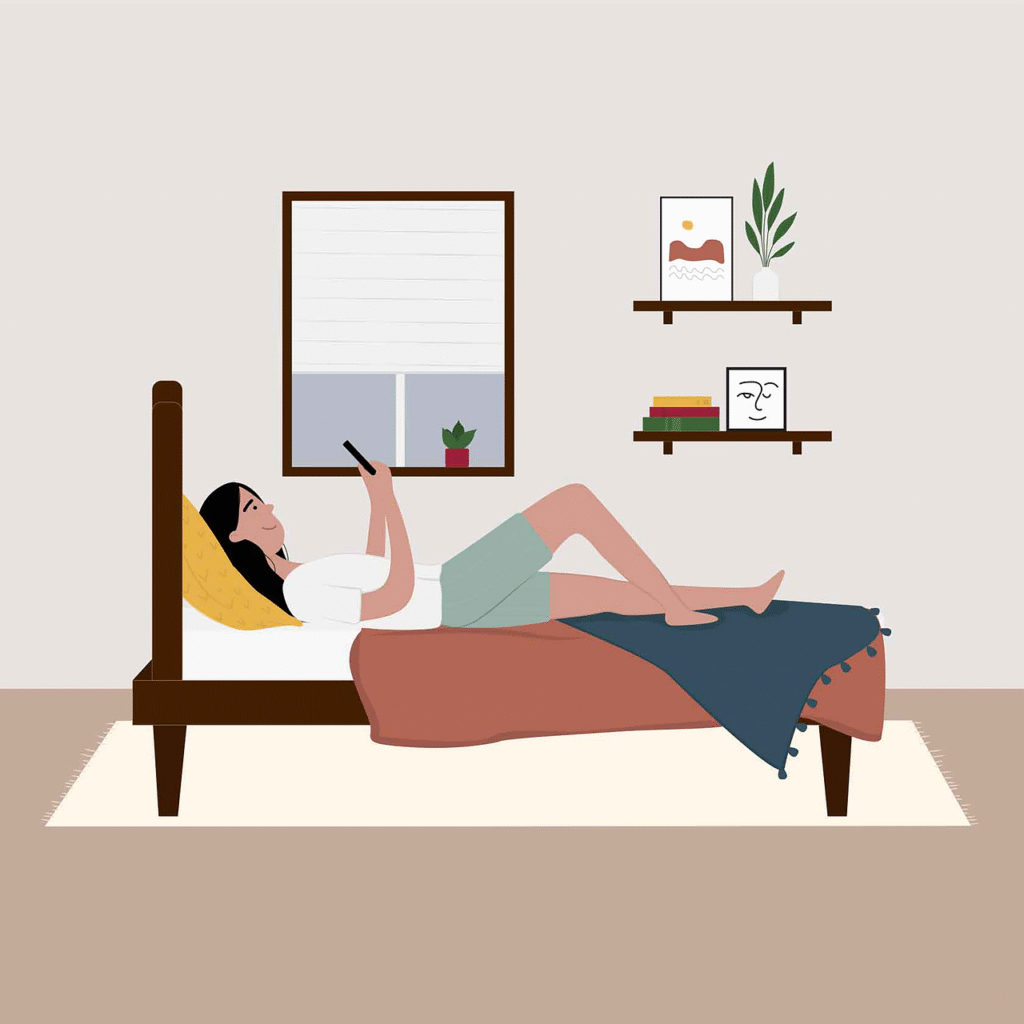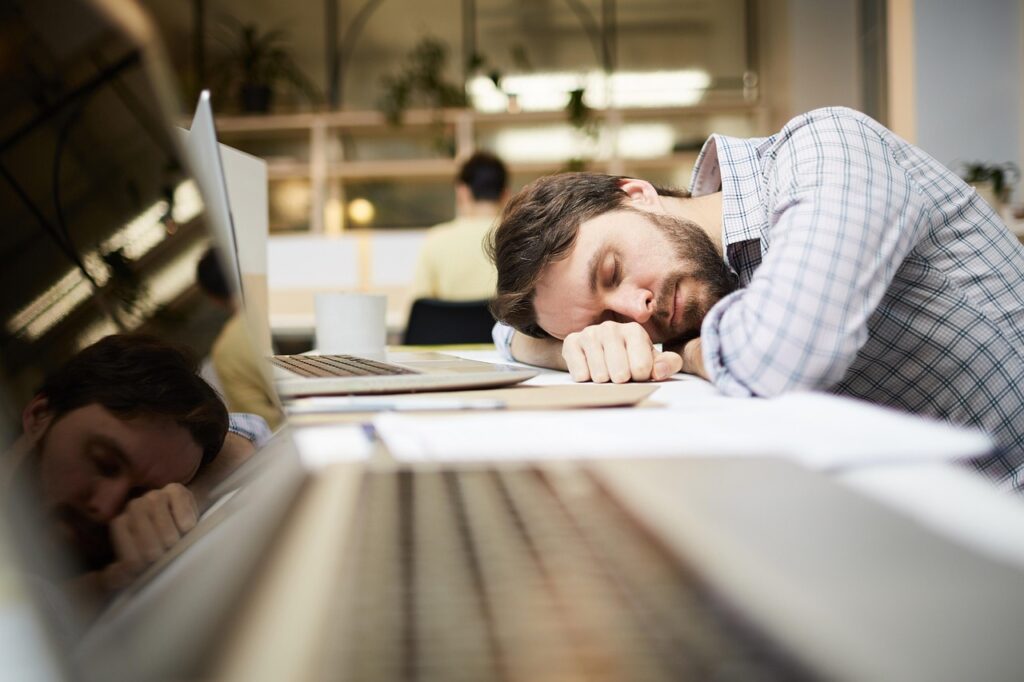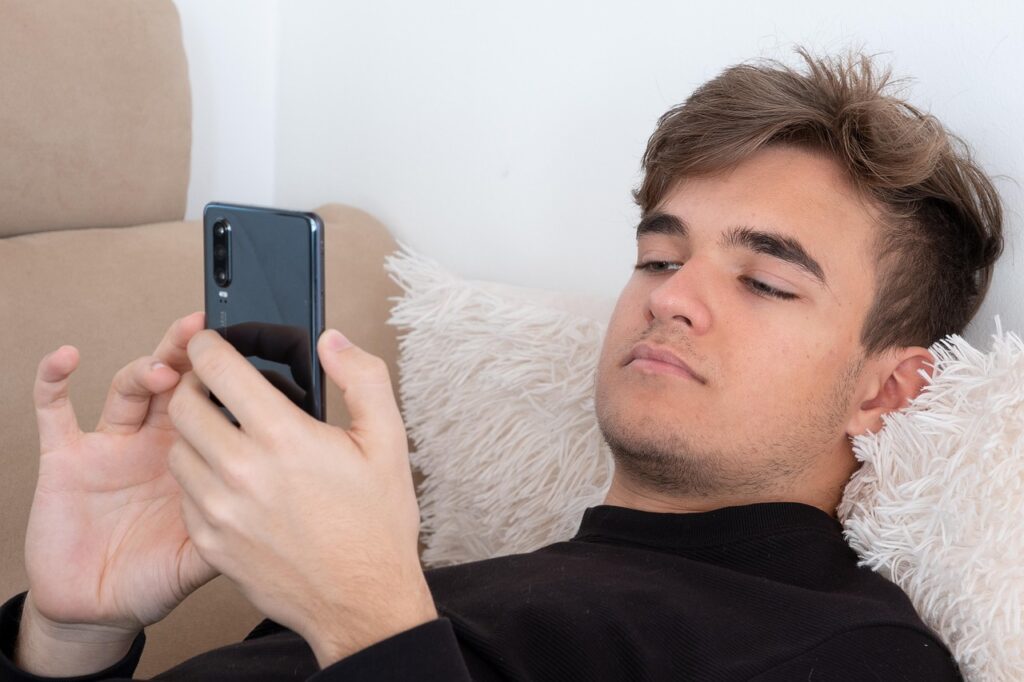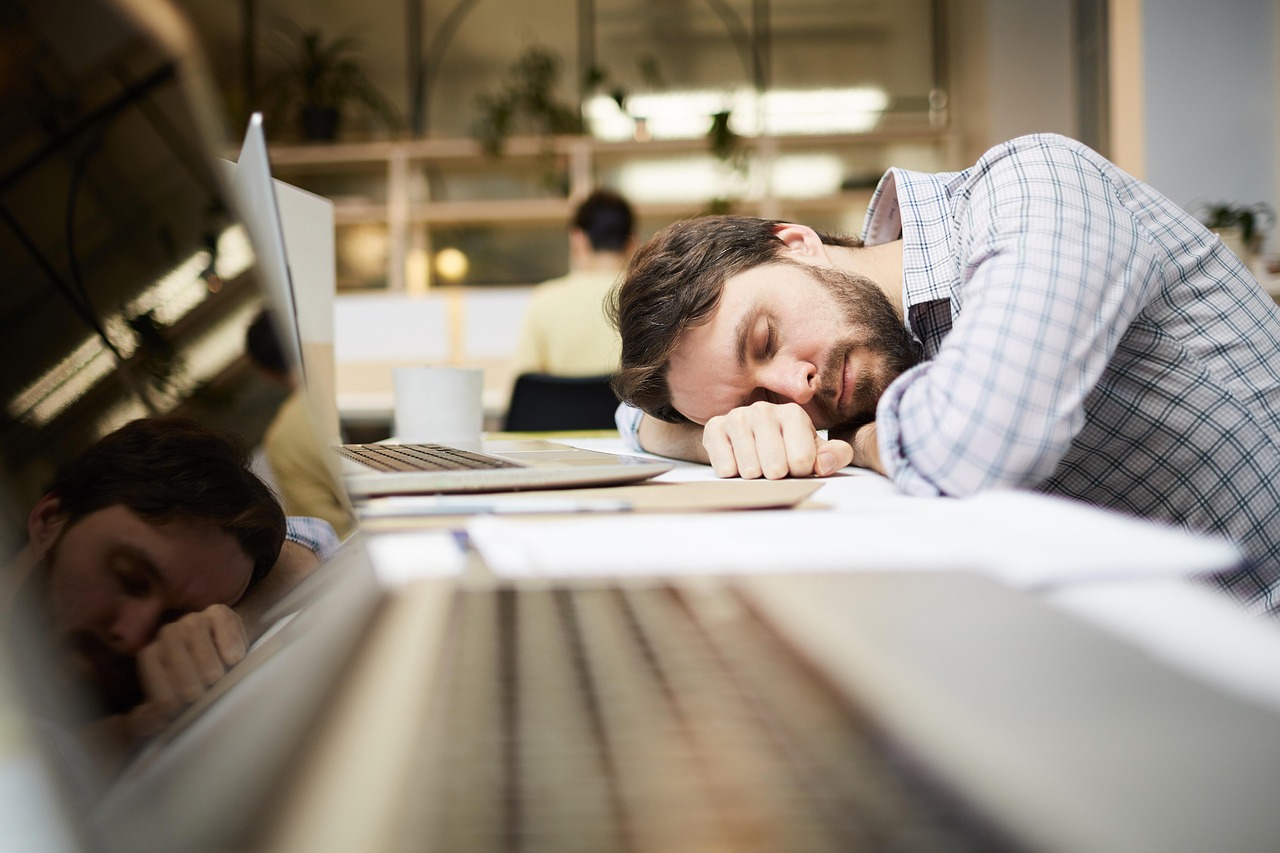In today’s digital-first lifestyle, we are constantly surrounded by screens—phones, laptops, TVs, and tablets. While these devices offer convenience, entertainment, and connectivity, they are silently affecting one of the most essential aspects of our health: sleep. Especially during the night, prolonged screen usage can drastically reduce sleep quality, leaving us groggy, irritable, and unproductive the next day.
In this blog, we’ll explore Sleep Disruption due to screen time , dive into the science and data behind it, and share practical tips to restore healthy sleep and boost productivity.

The Science Behind Screen-Induced Sleep Disruption due to screen time
Melatonin is a hormone that regulates our natural sleep-wake cycle, also called the circadian rhythm. It usually increases after sunset to prepare the body for sleep. However, blue light emitted by screens (especially phones and tablets) interferes with melatonin production.
A study published by the Harvard Medical School in 2014 revealed that blue light suppresses melatonin production twice as much as green light and shifts circadian rhythms by three hours. This means your body thinks it’s still daytime, making it difficult to fall asleep even when you’re physically tired.
Key Scientific Data:
- National Sleep Foundation found that 90% of Americans use an electronic device within 1 hour of bedtime.
- A 2017 study in the journal Sleep Health found that adolescents using devices at night were 2.5 times more likely to sleep less than 5 hours.
- Sleep Medicine Reviews (2020) meta-analysis of 67 studies confirmed: screen use before bedtime consistently led to shorter sleep duration and poor sleep quality.
Impact of Poor Sleep on Daily Life
You might think that losing an hour or two of sleep occasionally is no big deal. But chronic sleep disruption can have serious consequences for both your mental performance and physical health.
1. Reduced Productivity
When you don’t sleep enough, your cognitive function and decision-making abilities suffer. A 2021 study from the University of Western Ontario showed that people who slept less than 6 hours had significantly reduced focus, memory, and problem-solving skills.

Also Read : How Technology is Fueling Procrastination: 5 Ways to Take Control Today
2. Memory Decline
Sleep is crucial for memory consolidation. Without enough deep sleep, your brain can’t properly process or store what you learned the previous day. This impacts academic performance, workplace efficiency, and even emotional regulation.
3. Low Energy & Mood Swings
Poor sleep quality leads to low energy levels, making you rely on caffeine or sugar to get through the day. It also increases stress hormones like cortisol, leading to mood swings, anxiety, and even depression.
Real-Life Example: Sleep Loss in Teenagers
Teenagers are particularly at risk. A 2022 report by the American Academy of Pediatrics revealed that screen time over 4 hours a day was associated with delayed sleep, poor academic performance, and signs of digital addiction.
In India, a study by AIIMS (2023) found that urban teenagers exposed to screens for more than 5 hours daily had 35% higher chance of developing sleep disorders, including insomnia and sleepwalking.
How to Fix Your Sleep & Screen Habits
Getting your sleep back on track doesn’t require quitting screens completely. It just requires boundaries and better digital discipline.
1. Follow the 30-60 Rule
Avoid screens at least 30 to 60 minutes before bedtime. Use that time for reading, stretching, meditation, or offline journaling.
2. Use Blue Light Filters
Turn on night mode or blue light filters after sunset. Apps like f.lux or Night Shift (iPhone) automatically reduce blue light from your screen.
3. Create a Sleep-Friendly Bedroom
Keep your phone out of bed. Avoid binge-watching or doom-scrolling under the blanket. Instead, keep your room dark, cool, and quiet—ideal for deep sleep.

Also Read : Lack of Digital Discipline: The Silent Epidemic No One Talks About
4. Limit Late-Night Work
Working late on screens can activate your brain’s alert mode, making it harder to wind down. Finish digital work at least an hour before bed and plan your tasks ahead.
5. Track Your Sleep
Use apps like Sleep Cycle or wearables like Fitbit to analyze poor sleep quality or best. This helps you stay aware and accountable.
Bonus: Sleep More = Achieve More
Getting 7–9 hours of quality sleep has been linked with:
- 20–25% boost in workplace productivity
- Improved mood and social interactions
- Better academic performance
- Stronger immune system and lower risk of disease
Final Thoughts
Sleep disruption due to screen time is a hidden productivity killer. It silently eats away at your memory, energy, focus, and even your happiness. While technology is essential, learning to disconnect at the right time is just as important.
If you’re struggling to stay productive or motivated, start with your sleep hygiene. You’ll be amazed how much clarity and drive you regain with just a week of proper rest.
Also Read:The Truth About Multitasking Culture: Why It’s Killing Your Productivity
Sleep disruption due to screen time is becoming a widespread issue in both teenagers and adults. With the rise of mobile phones, tablets, and laptops, many people unknowingly suffer from poor sleep hygiene. Scientific research has shown that sleep disruption due to screen time is largely caused by blue light emitted from screens, which reduces melatonin production and shifts the body’s natural sleep-wake cycle. This not only delays sleep but also impacts sleep quality.
If you’re experiencing tiredness, lack of focus, or morning fatigue, there’s a high chance it’s due to sleep disruption due to screen time. Many individuals continue scrolling through social media or watching videos right before bed, unaware of its long-term effects. Addressing sleep disruption due to screen time requires simple lifestyle changes like reducing screen exposure before sleep and using blue light filters. Restoring your natural sleep rhythm can significantly improve productivity, mental clarity, and overall well-being.

